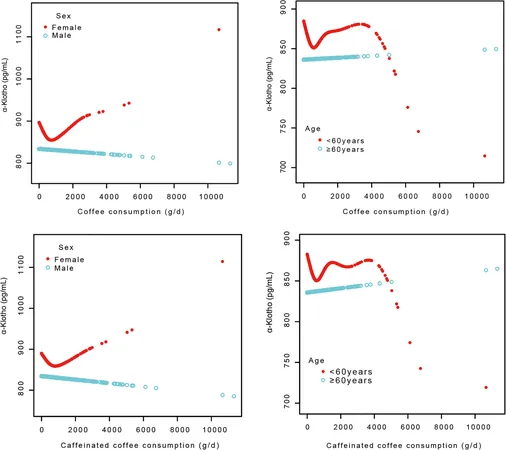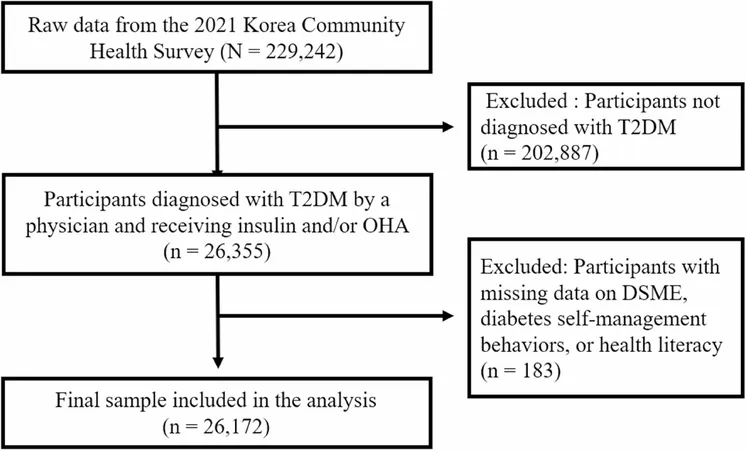
Revolutionary Blood Test Could Replace Invasive Heart Biopsies for Transplant Patients
2025-06-27
Author: Daniel
A Game-Changer for Heart Transplant Patients
Heart transplant patients often face the daunting necessity of undergoing surgical biopsies to check for organ rejection. However, groundbreaking research from Yale School of Medicine (YSM) suggests that a simple blood test could soon replace these invasive procedures, saving patients from discomfort and risks.
The Science Behind the Breakthrough
Researchers have focused on exosomes—tiny biological packets released by cells that contain vital molecular information. For over a decade, YSM scientists have explored the potential of these exosomes as biomarkers for heart transplant rejection in animal studies. Their latest findings, now tested in real patients, mark a significant step from lab research to practical application.
Dr. Sounok Sen, one of the study’s co-authors, noted a pressing need for better surveillance methods for rejection, stating that traditional heart biopsies are not only invasive but also inconvenient for patients.
Understanding Rejection: The Role of T Cells
Rejection occurs when a patient’s immune system identifies the transplanted heart as a threat and launches an attack. This is primarily driven by T cells, which constantly patrol the body for invaders. According to Dr. Prashanth Vallabhajosyula, the study’s lead researcher, accurate monitoring of T cell activity could provide crucial insights into rejection dynamics without subjecting patients to repeated biopsies.
Detecting Rejection Early and Accurately
In their research involving 12 heart transplant patients, the team discovered that blood analyses could reveal specific biomarkers linked to acute cellular rejection shortly after the transplant. Alarmingly, most rejection episodes occurred within the first 38 days, a critical window that current blood tests fail to cover.
Remarkably, the new test not only identified instances of acute cellular rejection but also distinguished different types of rejection, such as antibody-mediated rejection, which is crucial for tailored treatment approaches.
A Leap Towards Noninvasive Monitoring
This innovative biomarker platform allows for real-time monitoring of the body’s immune response, which could significantly reduce the need for multiple invasive biopsies. Dr. Vallabhajosyula emphasized that the ability to track treatment efficacy noninvasively is transformative, possibly reducing the trial-and-error approach often involved in treating transplant rejections.
Taking Steps Towards a Better Future for Patients
With ongoing studies involving over 100 patients, Yale researchers are optimistic about the potential of this blood test to revolutionize care for heart transplant recipients. The hope is that this will not only make monitoring safer but also improve patient outcomes overall.
Dr. Vallabhajosyula reflected on his experience with a patient who suffered complications from a routine biopsy, stating, "If advancements like this can help us avoid such situations, it would mean everything to me as a physician." Their collaborative efforts, backed by prestigious institutions and grants, are paving the way for a future where heart transplant monitoring is effective, efficient, and less invasive.



 Brasil (PT)
Brasil (PT)
 Canada (EN)
Canada (EN)
 Chile (ES)
Chile (ES)
 Česko (CS)
Česko (CS)
 대한민국 (KO)
대한민국 (KO)
 España (ES)
España (ES)
 France (FR)
France (FR)
 Hong Kong (EN)
Hong Kong (EN)
 Italia (IT)
Italia (IT)
 日本 (JA)
日本 (JA)
 Magyarország (HU)
Magyarország (HU)
 Norge (NO)
Norge (NO)
 Polska (PL)
Polska (PL)
 Schweiz (DE)
Schweiz (DE)
 Singapore (EN)
Singapore (EN)
 Sverige (SV)
Sverige (SV)
 Suomi (FI)
Suomi (FI)
 Türkiye (TR)
Türkiye (TR)
 الإمارات العربية المتحدة (AR)
الإمارات العربية المتحدة (AR)